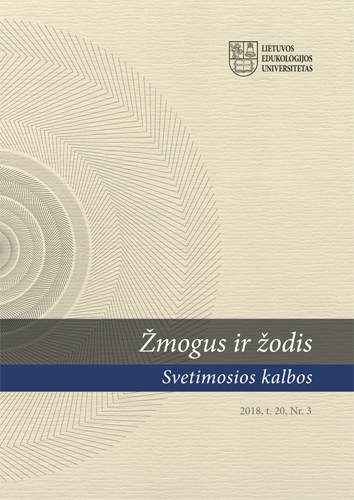Eristinis argumentavimas politinėje reklamoje
Eristic Argumentation in Political Advertising
Author(s): Skirmantė Biržietienė, Eglė GabrėnaitėSubject(s): Politics and communication, Rhetoric
Published by: Vytauto Didžiojo Universitetas
Keywords: rhetoric; persuasion; eristic; eristic argumentation; political advertising;
Summary/Abstract: Rhetoric is a universal persuasion system: it is the ability to discover persuasive ways and means in each particular case. The essential part of the convincing process – argumentation – becomes the core of the rhetoric science. The article deals with the argumentation level of political discourse, specifically with political advertising. The aim of the article is to elucidate the concept of eristic and eristic arguments, as well as reveal the universal character of rhetorical persuasion – to identify and explain the dominant models of eristic reasoning in political advertising. Eristic arguments are considered as logical fallacies, unreliable arguments, but classical rhetoric justifies the ethical use of sophismata and eristic ways in persuasive discourses. Eristic argumentation is ethical as long as the addressee is free to accept or reject the arguments put forward, so the eristic must be understood further because we can identify and reveal false statements. An analysis of the peculiarities of argumentation of various forms of advertising reveals that eristic argumentation is the predominant kind of argumentation in advertising. The choise of eristic argumentation in political discourse is influenced by the competitive mode of elections, clearly seen in the pre-election debates and other verbal form of dispute.
Journal: Žmogus ir žodis
- Issue Year: 20/2018
- Issue No: 3
- Page Range: 74-82
- Page Count: 9
- Language: Lithuanian

